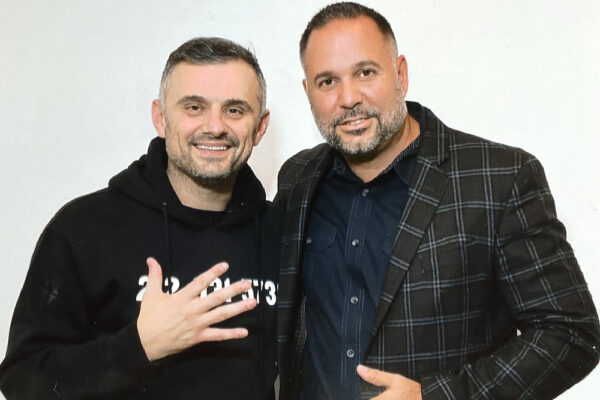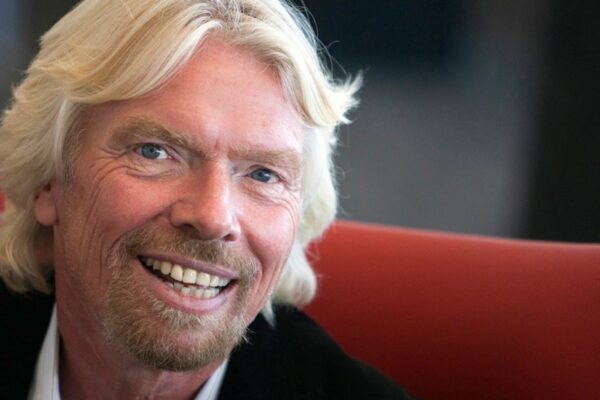A graduate of Inc. & MIT’s “Birthing of Giants” Entrepreneurial Program, Mike Michalowicz received Young Entrepreneur of the Year awards multiple times. He is a recurring guest on CNBC’s The Big Idea with Donny Deutsch, has been featured on National Public Radio (NPR) and in the New York Times, Smart CEO Magazine, and other publications.
Mike is a guest lecturer for entrepreneurial groups at Babson, Boston College, Columbia, Harvard, Penn State, and other colleges throughout the country. He bleeds Orange and Maroon (meaning he’s a die-hard Virginia Tech Hokie fan).
Mike, what is the best age to start a business?
Mike: Whatever age you are at this exact moment, regardless if you are 12, 25, or 81. The key is not the age as much as starting now. Clearly, you have time on your side the younger you are when you start. So regardless of your age today, you will be older tomorrow. So start today, before you get older tomorrow.
How should an entrepreneur handle failure?
Mike: Failure is simply a path discovered that does not work. So, it should be seen as progress and as a lesson. The lesson to take away is that you should NOT repeat the mistake a second time. Ultimately the only failure is never to have tried.
Most people are afraid of starting a business because they fear they will never make enough money to cover the costs. What advice can you give them?
Mike: Starting a business is first and foremost about surviving; it’s NOT about thriving. Too many entrepreneurs go into business thinking that they can sustain their current standard of life and launch a business, but that is not the case. Often a new entrepreneurial endeavor requires taking one (or two) steps back first, then a giant leap forward.
So to overcome the fear of, I’ll never make enough, determine what the minimum you would be willing to deal with is. Would you be willing to move back in with your parents or a friend’s basement? Would you be willing to eat beans and rice for a year? How economical would you be willing to go? Then actually do it! Start living on the cheap and start building your business. You will not only afford ample time to launch, but you will defeat that nagging fear of not having enough money. Slowly but surely, your business will grow, and so will your discipline to growing a healthy, fiscally responsible company.
You told me that entrepreneurs that start a business on the cheap, with little or no investment, could have an advantage over the entrepreneurs. Can you explain?
Mike: Not just an advantage, but a HUGE advantage. The reason is that money is simply an amplifier of habits. It allows you to do what you want faster and stronger. But it also clouds problems because it gives you the freedom to continue doing things that aren’t working. That is until the money runs out. So, ironically, when we have less money, we are smarter and use it more prudently. When we have less money, we use our minds more to stretch every dollar the distance.
Listen, no money puts you in hunting mode. You are hungry from day one. And someone that is hungry will go out and will approach things in a different, unorthodox way to make money. The person that walks in with lots of cash doesn’t have to hunt immediately and isn’t punished for being lazy or making mistakes. I bet on the person living their passion and without a penny to their name over the funded players every time.
You launched three multi-million-dollar companies and now wrote a book: The Toilet Paper Entrepreneur. What’s the book about?
Mike: The book is about the right and wrong ways of building the business of your dreams. It is all about showing the real side of entrepreneurialism, not just the pretty stuff everyone hears about. I mean, people wet their pants when they hear someone has built and sold multi-million dollar companies. Typically they think it is not possible for them, or they become get envious, and a few aspire. The thing is, envy will stop you before you get out the gate, and aspirations to riches are only good when they are informed. I wrote the book to make sure people know it is freaking work to build successful companies… but there is a success formula, and it is rooted in mindset, focus, and taking actions consistent with that. It is that simple. It is that hard.
Who should read it?
Mike: First-time entrepreneurs, people who are considering becoming an entrepreneur, and entrepreneurs who are struggling. If you have already grown a profitable company past $5M in revenue, it’s probably not for you – I suspect you already know most of the secrets. Now, that being said, if you have a company of that size, I encourage you to be philanthropic and buy 1,000 copies to give to entrepreneurial organizations and groups!
You said in an interview: “I believe instead of getting rich quick; you can get rich right.” So what are the rules to be successful?
Mike: So many people are trying to get rich quickly so that they can live happy lives. The funny thing is that it is totally backward. To get rich, you need to be doing what makes you happy. That is the method of getting rich, right.
I’ve got this from the book preview: “The Toilet Paper Entrepreneur helps first-time entrepreneurs develop the qualities and beliefs they need to recognize and cultivate to succeed in business, explaining how to cut through excuses and pursue the business that sets their hearts afire.”. Some, including myself, are even more afraid of starting a second business because now, they have something to lose. Or even worse, they failed at the first one. What’s your advice?
Mike: I have started two businesses that I enjoyed but didn’t love to my core. So I know what you are talking about. The trick I use is this: I sit quietly by myself and try to envision the future. What is the thing 5 to 10 years out that would make me happiest? What would be the most amazing thing I could accomplish, and then I look at my current state of affairs to see what, if anything, I need to change to get there.
When you do this visualizing of your future and then considering dropping the current business, does it feel like it will get you a step closer to your destination? If so, then drop it.
Oh, and don’t worry about failing on the first one. Everyone has failures at some points in their business life, so be grateful you got one out of your way so quickly!
What was the best business decision you ever made?
Mike: To be true to me to the fullest and let the people who didn’t agree pursue their own interests.
The third business you launched and currently work on is Obsidian Launch. What does it do?
Mike: We partner with first-time young entrepreneurs. Instead of giving them money, you know my thoughts on that already, we hire and pay for their staff. So we will bring on an accountant, a lawyer, a marketing specialist, and a “been-there-done-that” entrepreneur to work with them, for example. Then we take a phantom position in the company, allowing us to share in profit and allowing the entrepreneur to retain 100% equity. We are VERY motivated for them to grow healthily since our business depends on it.
What advice could you give entrepreneurs that are afraid to start because they don’t have that unique, excellent business idea?
Mike: Ideas are a dime a dozen, so don’t worry about that. Instead, find something that is totally consistent with your life’s passion. Something that you can’t wait to wake up and start doing every single day of your life… NOT for the money, but just because you love it. That will be a field that you will lead-in, and the money (and there will be lots of it) is just a big nice bonus.
You’re not a great business plan fan. I have a different opinion on this, as I believe a basic business plan should serve as guidance to see if you are going in the right direction. How should one evaluate if the business will work (calculate necessary sales volumes, market potential, and so on)?
Mike: Any document that gets written and then sits on the shelf clearly has little on no value. Instead, I believe in having 3 critical living documents. First, a Prosperity Plan is the vision of yourself and your company 5 to 10 years from now. Second a Quarterly Plan – this is a list of the tasks and goals that will move you ahead the most in the next 90 days to achieving your Prosperity Plan. And finally, Daily Metrics, the method to use to track your company’s heartbeat.
Regarding determining the niche for your business, I use a method that I call the Formula Five. In short, what niche can I achieve at least $5M US in revenue within 5 years of starting it, and currently has less than 5 competitors? When you discover that niche, and it is your passion, you are set to explode.
Most of the Entrepreneurship stories, resources, and know-how come from the US. You currently went to Jamaica and returned with an excellent article about Entrepreneurship there. How do you feel about Entrepreneurship elsewhere than the US?
Mike: I have found that countries like Jamaica have entrepreneurs hungry for success, perhaps more hungry than their US counterparts. I believe that the Internet is the great entrepreneurial equalizer and that the most hungry and relentless entrepreneurs will lead. I think any country with hungry entrepreneurs looking to achieve American lifestyles or greater and Internet access is poised to take off.
You started 3 companies. When did you get the feeling they are going in the right direction? I mean, there must be a moment when you realize that, yes, this business is doing well.
Mike: There was a time in all my companies that I wanted to stay and not go home, just because I was having so much fun. Those are the times that I felt things were going right… and not so coincidentally, that is when my companies generated the most money. So I have focused on making sure I am serving my passion, my happiness first, and then everything else comes into line.
If you were to give 3 pieces of advice to young entrepreneurs, they would be…?
Mike: First, clearly follow your passion. People will give you advice and get rich now opportunities will abound, but if you are not doing what you love, the guy will kick your ass. Instead, be the guy who is working in their field of passion, and kick other people’s asses.
Second, hang out with people who have achieved what you want to achieve. It doesn’t make sense to hang out with struggling entrepreneurs if you intend to be a wildly successful entrepreneur. Instead, hang out with wildly successful entrepreneurs. And by virtual osmosis, your success will be much greater. By the way, it is much easier to hang out with successful entrepreneurs than one would think!
Third, trust yourself over anyone else. People will give you a million reasons why you are going to fail and why you are foolish. Listen to them if you want, but ALWAYS listen to your instinct first… there is a 99% chance your instinct is right. Ultimately, who knows what you are capable of any more than, well, you.
The Toilet Paper Entrepreneur book addresses the issue of starting a business with less or no investment money. But what about having some money to invest – usually savings from a few years of work and being afraid of not losing them?
Mike: When it comes to money, I always look at myself for an investment first. I mean, it is distinctly more painful spending my own money than it is someone else’s. So if you are going to use funds, squeeze everything out of yourself first before you look at anyone else. That should keep you on track of financial discipline.
How important is the family when starting a Toilet Paper Entrepreneurship experience?
Mike: My family provides me with emotional support, which is key, but even more importantly, they bring in balance. I love what I do that I literally get lost in it at times and don’t stop working. My family brings me a reality check and experiences that I miss out on when I just work, work, work. And with proper balance, I become the best in both areas – work and family.
Usually, if something is not right, it takes some time to abandon the idea because you always hope it will get better. When should one quit a business if it doesn’t go?
Mike: I think no one should ever abandon the long-term vision because if done properly, the long-term vision is the entrepreneur’s life passion. But as we tack along (tacking is a strategy of taking action and adjusting), we need to be very aware of what is not working and what is not. So, in a very simplified response, I reevaluate every ninety days and adjust. In the early stages of a business, I make the most adjustments to see where my strategies have the most legs, and as things get moving along, I refine my strategy more and more.
Thanks, Mike, for the wonderful interview!
Well, Mike also did the favor to mail me a signed Toilet Paper Entrepreneur book, which I’m absolutely going to devour. In the meanwhile, here is the Toilet Paper Entrepreneur sneak peek promo video.




